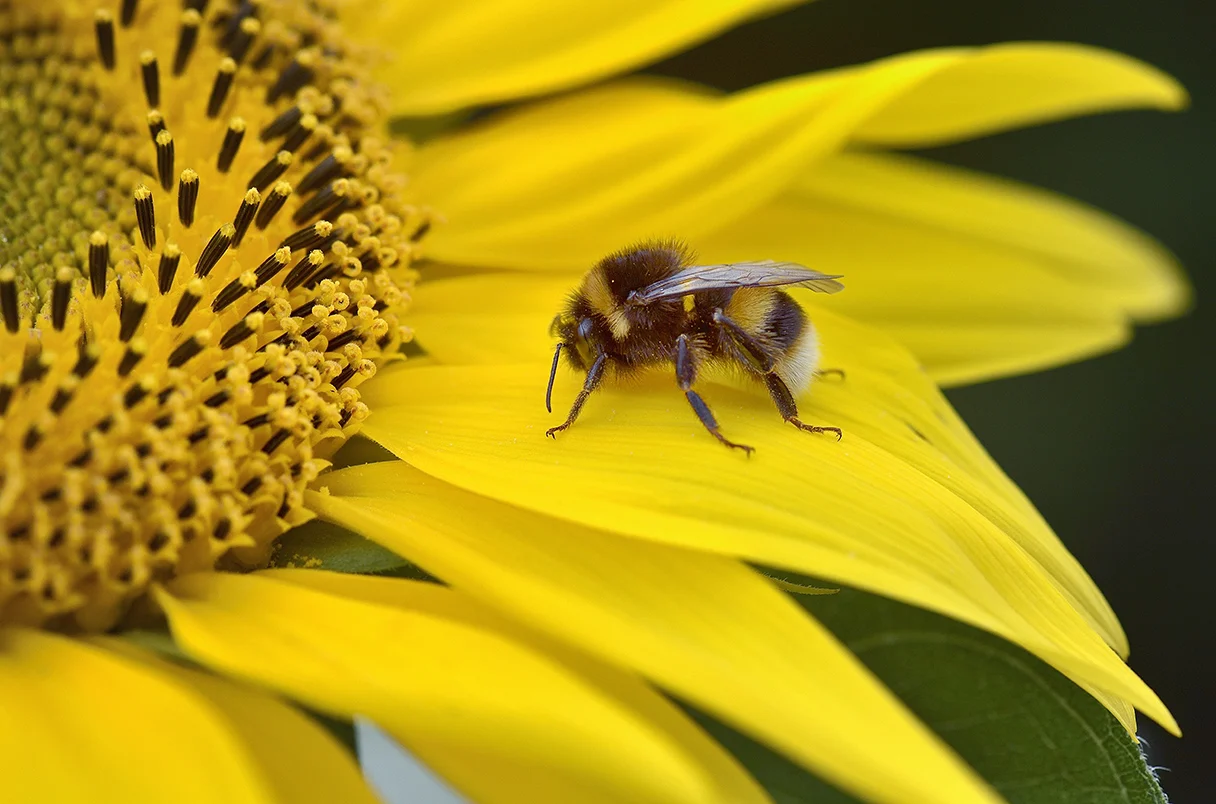Heat Waves Responsible For The Loss Of Sense Of Smell In Bees

Extreme heat waves might be responsible for the loss of sense of smell in bees, a study from the Proceedings of the Royal Society B confirmed. It suggests that humans might not be the only creatures on the planet who are affected by heat waves, bees are too.
The research indicated that bumble bees are under great threat of losing their sense of smell pertaining to high heat waves, due to which they would not be able to smell the flowers they feed on. The climate changes due to the changes in pollination patterns would affect crop yielding and other phenomena drastically.
(Also read: Ireland Was Once Home To Peculiar Creatures Million Of Years Ago)
Coline Jaworski is a field ecologist at France’s National Institute for Agricultural, Food and Environmental Research and was not part of the said research. She said, “The results are pretty clear: There is an effect of heat waves on bumble bee physiology. If pollinators are not coming for a few days…then there’s no pollination, no seeds and no descendants- that’s it”.
If bees do not get to pollinate then humans would not be able to get various types of fruits and vegetables to enjoy. The nuts, legumes and flowers that we see around the world are all because of bees and their pollination, Jaworski explained.
Researchers have known the reasons for the declining bee population for years. Climate change and habitat loss are the two main causes.
Last year was recorded to be the hottest recorded year till now that impacted human lives globally. The devastating periods of suffocation that could last for days and insufficient water supply in several heat-stricken areas were some of the highlights of this disaster.
With such massive global warming and its adverse effects, drought can reduce flower production, hence the bees would not be able to pollinate. Also, bees need to pollinate to stay healthy, which implies a clear threat to their extinction.
Moreover, extreme heat can minimise the smell of the flowers. Heavy rainfall can cause distortions in the bees’ sense of smell, instigating problems in their pollination patterns. It is justified that bees were made to live in high-altitude areas and adapted well to cold regions.
Now the bees would face issues in pollination in warmer areas, the total opposite of the regions like the Arctic and the Alps.
Bees as pollinators and their physiology has remained of great interest to the researchers. They have found that bees use their sense of sight and smell to pick the best flowers to obtain nectar from. They locate flowers of beautiful colours to locate them and their antennae to pick the best-smelling ones.
The scent molecules of flowers are picked up by the bees via their antennae instantly generating an electrical signal to their brain. Sabine Nooten, an insect ecologist put it this way, “It would be like if you walked past a restaurant, [and through smell] you find out,m is this a good kitchen or not a good kitchen”.
An experiment to test loss of sense of smell through heat waves
Sabine Nooten with her team tested the reduction of the sense of smell in bees with an experiment. They took 190 insects of two species in Europe. They kept bumble bees in a 50-millilitre tube, exposed to heat of more than 40°C for three hours and removed their antennae.
The electrical response of the antennae was then measured by attaching them to electrodes. Afterwards, they were exposed to three fragrances that are commonly found in flowers: ocimene, geraniol and nonanal.
Surprisingly, the electrical response was way too low for all three scents, with up to 80 per cent less response, as per the research report.
Jaworski elucidated that bumble bees do have the ability to regulate their own body temperature, however, their ability to smell flowers would still be jeopardised by extreme heat waves that are inevitable in coming times.






